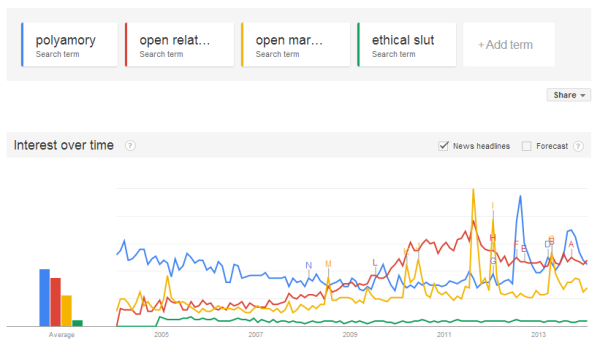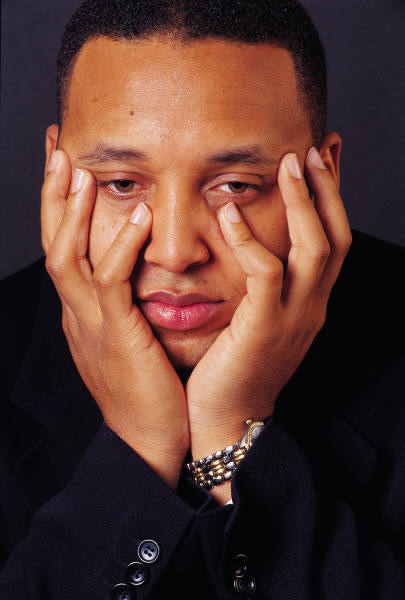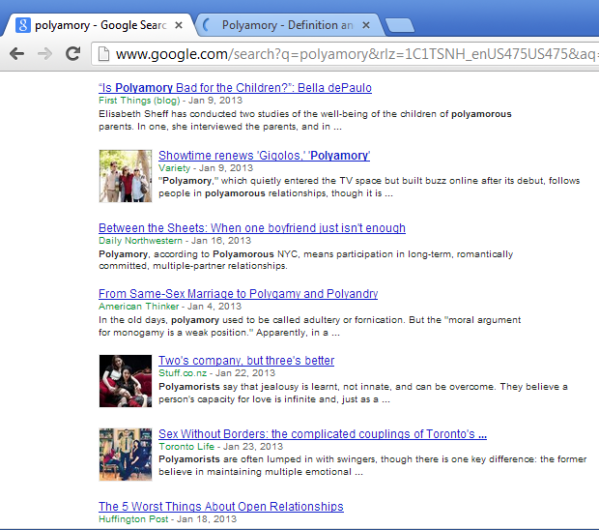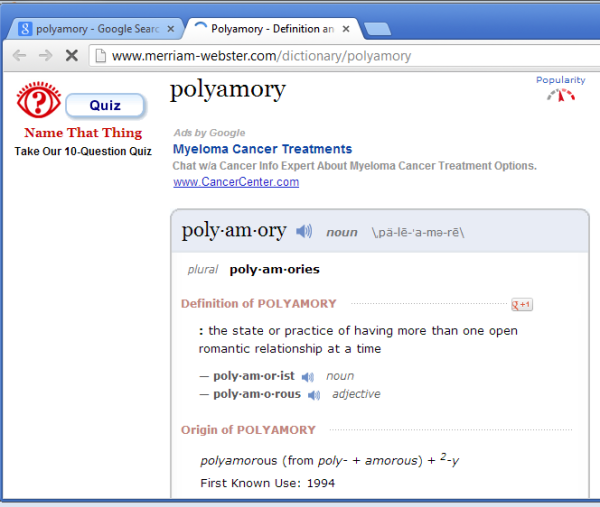So, A-number-one, as some friends would say, it’s been a while since I’ve updated. Hello. Hi. I am alive, well, and thinking about sex, love, and relationships sometimes but not always, because life is grand and full of awesome and busy and still awesome.
Yes.
B-number-two: that doesn’t change how bad I feel about not updating. I am sorry. I am updating tonight because of a confluence of two unrelated events that were, in my head, related and became necessary to blog about.
Here goes.
I can’t explain how much I enjoy the company I’ve been keeping as of late. I have been happily living and working with people who, in many ways, are very similar to myself, and in many ways, very different from myself. It’s been an interesting flexing and constricting of my personality muscles. It’s been an opportunity to stop and examine the effect of my actions and words on others, and grow. It’s been an unusual situation of being housed with a number of people with very different life experiences and viewpoints than my own, and that’s provided much perspective.
Today, I talked with a friend, revisiting the topic of labels. She has a pretty easy time understanding my indifference towards labels like “boyfriend” and “girlfriend,” whereas others, not so much. It was interesting to not only hear her take, but also hear the questions she had to ask. Would I expect different things from someone I called “boyfriend”? Would it change things?
I don’t think it would, except to change the difficulty from having to explain that not having a boyfriend/girlfriend doesn’t mean that I’m not emotionally invested in someone, to having to explain that, though I call someone “boyfriend”/”girlfriend”, I don’t expect things of them that most people would expect from a person with that label. It’s a pick-your-poison situation, and I guess I like handling the “if I don’t label it, you don’t feel obligated to understand it” poison.
In a completely unrelated parallel universe of my existence, another friend had, days ago, recommended I check out Sex Nerd Sandra, and when I finally got around to it tonight, her most recent podcast was on, you guessed it, Struggling With Monogamy!
In it, one of her guests poses the questions:
But what’s a relationship? And how do you know when you’re in one? And when do you decide that you’re actually in a relationship with someone?
And points out:
Monogamy and nonmonogamy; it’s not as clear-cut as it might seem.
True dat. There’s an honorable mention about polyamory at the end of the podcast, if you’re interested, but it’s mostly along the lines of “oh yeah, people these days are poly, like, ‘yeah, I’m vegan and fair trade and poly…'” before the conversation gets cut off for time. Too bad. The conversation had revolved around stuff I’ve already spent loads of thought-time and blog space on, so I won’t regurgitate it, but if it interests you and you’re new to the nonmonogamous conversation, have a listen.
Last, but not least, C-number-3: I am working on a book about sex for a, ahem, less-experienced friend of mine who would like a book on said topic. It is a very exciting venture, even more exciting at the moment than Love Times Infinity, the novel, so it’s been getting loads more attention. Hopefully, if I get it all put together, I can make it available in an ebook version, and let you all have at it.
You’re welcome.
Until my next break from climbing trees and smelling like campfire; keep smiling!







